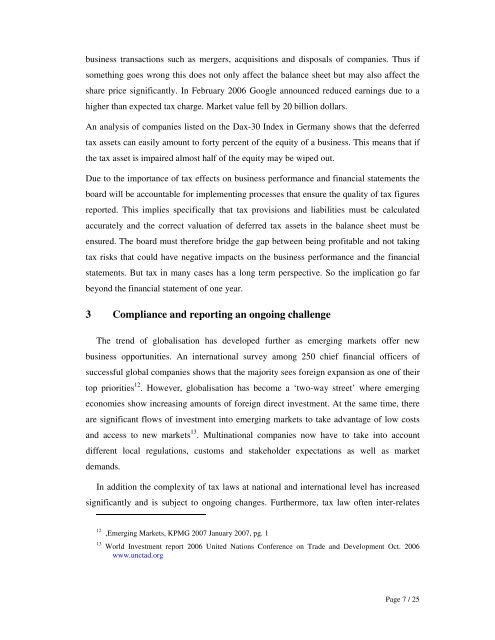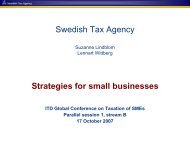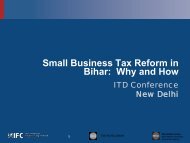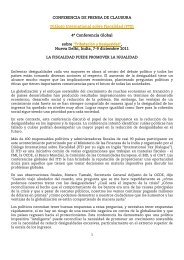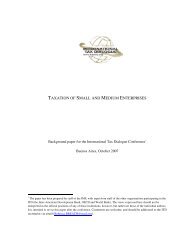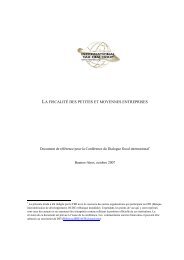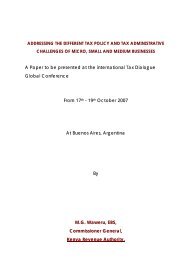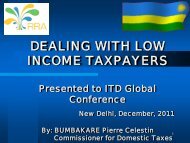Tax Risk Management and Board Responsibility - International Tax ...
Tax Risk Management and Board Responsibility - International Tax ...
Tax Risk Management and Board Responsibility - International Tax ...
Create successful ePaper yourself
Turn your PDF publications into a flip-book with our unique Google optimized e-Paper software.
usiness transactions such as mergers, acquisitions <strong>and</strong> disposals of companies. Thus if<br />
something goes wrong this does not only affect the balance sheet but may also affect the<br />
share price significantly. In February 2006 Google announced reduced earnings due to a<br />
higher than expected tax charge. Market value fell by 20 billion dollars.<br />
An analysis of companies listed on the Dax-30 Index in Germany shows that the deferred<br />
tax assets can easily amount to forty percent of the equity of a business. This means that if<br />
the tax asset is impaired almost half of the equity may be wiped out.<br />
Due to the importance of tax effects on business performance <strong>and</strong> financial statements the<br />
board will be accountable for implementing processes that ensure the quality of tax figures<br />
reported. This implies specifically that tax provisions <strong>and</strong> liabilities must be calculated<br />
accurately <strong>and</strong> the correct valuation of deferred tax assets in the balance sheet must be<br />
ensured. The board must therefore bridge the gap between being profitable <strong>and</strong> not taking<br />
tax risks that could have negative impacts on the business performance <strong>and</strong> the financial<br />
statements. But tax in many cases has a long term perspective. So the implication go far<br />
beyond the financial statement of one year.<br />
3 Compliance <strong>and</strong> reporting an ongoing challenge<br />
The trend of globalisation has developed further as emerging markets offer new<br />
business opportunities. An international survey among 250 chief financial officers of<br />
successful global companies shows that the majority sees foreign expansion as one of their<br />
top priorities 12 . However, globalisation has become a ‘two-way street’ where emerging<br />
economies show increasing amounts of foreign direct investment. At the same time, there<br />
are significant flows of investment into emerging markets to take advantage of low costs<br />
<strong>and</strong> access to new markets 13 . Multinational companies now have to take into account<br />
different local regulations, customs <strong>and</strong> stakeholder expectations as well as market<br />
dem<strong>and</strong>s.<br />
In addition the complexity of tax laws at national <strong>and</strong> international level has increased<br />
significantly <strong>and</strong> is subject to ongoing changes. Furthermore, tax law often inter-relates<br />
12 ,Emerging Markets, KPMG 2007 January 2007, pg. 1<br />
13 World Investment report 2006 United Nations Conference on Trade <strong>and</strong> Development Oct. 2006<br />
www.unctad.org<br />
Page 7 / 25


